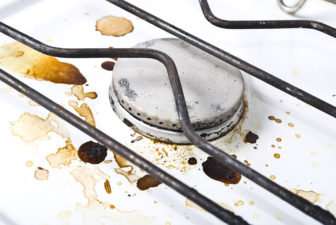
Recently, the City of Jackson announced that it has started a program to keep fats, oils and grease, or FOG, out of the city’s sewer system. Here is the press release verbatim.
CITY OF JACKSON ENCOURAGES RESTAURANTS TO CLEAN UP HARMFUL FATS, OILS, AND GREASE WITH ‘FOG’ PROGRAM
Jackson, Miss.—The City of Jackson is partnering with local Food Service Establishments (FSEs) to help educate business owners on the importance of keeping fats, oils, and grease—or FOG—out of the City’s sewer system.
As they move through the sewers, FOG components congeal, causing line blockages or sanitary sewer overflows (SSOs), which require significant resources to alleviate.
In an effort to help combat this issue, the City has launched a new Fats, Oils, and Grease Control Program (FOG Program) as one part of the City’s efforts to meet the requirements of its Consent Decree with the U.S. Environmental Protection Agency (EPA) to reduce the volume and frequency of sewer overflows.
Without proper management practices, FOG will accumulate in sewers. Restaurants and other food service establishments can face fines, and water and sewer service can be interrupted due to blockages and backups. The City of Jackson’s Code of Ordinances now includes FOG control provisions, and in some cases, Food Service Establishments may be held financially responsible for damages resulting from blockages and backups.
The Jackson FOG Program is designed to educate FSEs and the public on the importance of FOG control, provide information on Best Management Practices (BMPs) to keep FOG out of the sewer system, and help to enforce proper FOG management practices.
Grease control devices—grease traps or grease interceptors—are required to collect all grease generated by the establishment on the premises. Grease enters food service establishments grease traps from dishwashers, sinks, floor drains and dumpster pads. Grease traps and grease interceptors are used to recover the grease and protect the sewer lines. Blockage of sewer lines occurs when these grease control devices are not maintained properly. Proper maintenance requires the entire contents of a grease trap to be removed weekly or monthly as needed, and disposed by a licensed waste hauler.
Food Service Establishments wanting to know more about the City of Jackson’s FOG program can contact LuFunya Porter, (601) 352-6800, [email protected] or April Sawyer, (601)960-1087, [email protected].
This has been edited for style.
Comment